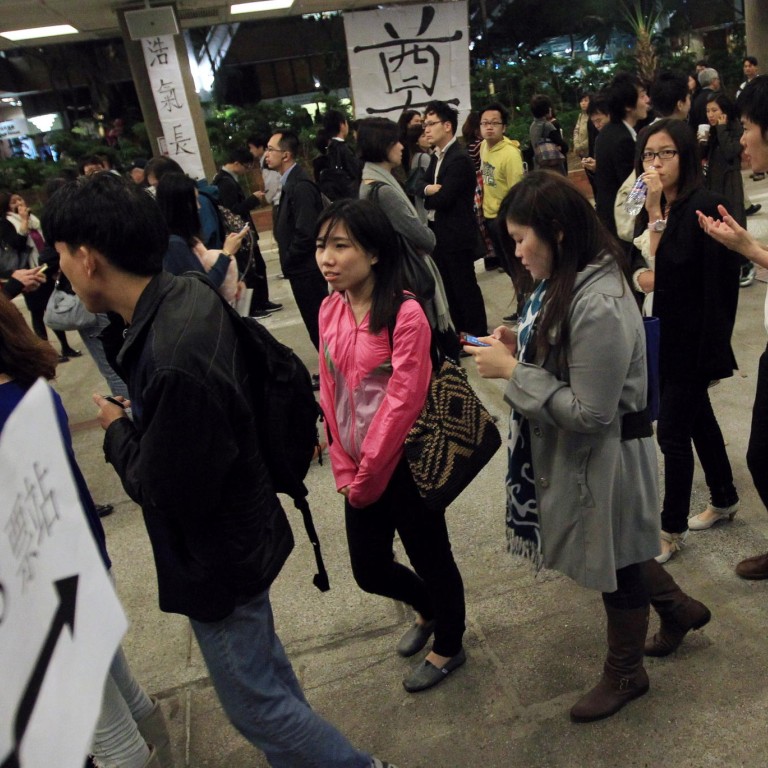
Universities offer help with public referendums
Researchers will assist any politicians or groups who want to test the public mood on a chosen topic - but applicants bear the cost
Hongkongers may soon get a chance to make their voices heard on contentious issues like national security legislation and political reform, in a new project from two local universities.
The University of Hong Kong and Polytechnic University have put the call out to any groups or politicians who want to hold a public referendum on a particular topic.
The researchers welcomed any submissions on suggested topics, but applicants whose ideas were chosen must bear all operational costs of the public vote, said Robert Chung Ting-yiu, director of the HKU public opinion programme.
"We will not consider the political background of the group when vetting applications," Chung said. "We will kick-start our voting system if they think our PopVote Civil Referendum can help them gauge the public's opinions and if we find the topic appropriate."
HKU launched the project jointly with PolyU's Centre for Social Policy Studies yesterday, citing the lack of a statutory referendum system in the city.
The initiative came 10 months after some 220,000 people picked their ideal chief executive in a mock ballot in March, ahead of the real election and in the absence of universal suffrage. That citywide exercise was conducted by the public opinion programme.
Chung said the PopVote project would not run a vote on "trivial matters". "Civil referendums can be used to collect views on issues of major public interest in society … such as the Article 23 legislation," he said, referring to the Basic Law provision that requires Hong Kong to pass laws prohibiting any act of treason, secession, sedition or subversion against the central government.
Electoral reform for the 2016 Legislative Council and 2017 chief executive elections as well as the government's plan for a new town in the northeastern New Territories could fall within the scope of the plan, Chung said.
But he ruled out a vote on Hong Kong independence as it did not involve major public interest and was impractical. Researchers would not initiate a referendum on their own, he said.
Asked if they feared incurring Beijing's wrath, Chung said: "We won't consider whether there could be huge political pressure on us as we will just do our work."
The project is seeking funds to improve the electronic voting system after hackers disrupted HKU's ballot in March. HKU programme information technology manager Jazz Ma said they aimed to raise HK$800,000 to build a system to handle 800,000 votes.
The March vote also prompted activists to publish a Chinese-language book, . The title hit major bookstores last week.
